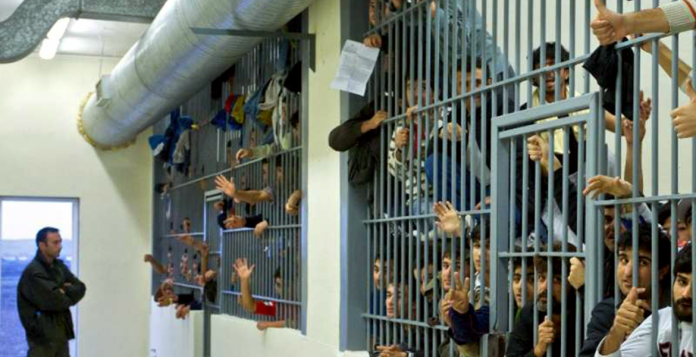Romania’s prison conditions are of great concern to the Council of Europe’s Committee for the Prevention of Torture and Inhuman or Degrading Treatment or Punishment (CPT), as detailed by their report. The conditions discovered by the CPT team fall far below expected European standards for the treatment of prisoners and include attacks by masked intervention groups, violence, lack of healthcare and severe overcrowding.
Climate of fear
Allegations of physical ill-treatment of prisoners by prison staff were received, notably by members of the masked intervention groups based in four of the five prisons visited. The climate of fear at Galati prison was particularly alarming to the CPT team. The report detailed several allegations of ill-treatment by staff corroborated by medical evidence and raised serious concerns over the lack of recording of injuries by the health care service and failures to investigate allegations effectively. The CPT questioned the raison d’être and modus operandi of the masked intervention groups.

Beatings and sexual abuse
The report also documented several cases of severe beatings and sexual abuse by prisoners in their cells, notably among young adult prisoners at Bacău Prison. The CPT urged the authorities to put in place a cell-share risk assessment process for each person entering prison before they are placed in an admission cell, followed by drawing up and implementing an individual risk and needs assessment. As part of the strategy to combat inter-prisoner violence, the CPT recommended that the authorities invest far more resources in recruiting additional staff and developing their professionalism and training.
Conflicts of interest of healthcare staff
The findings on health care services in the prisons were also alarming. The CPT report found that conflicts of interest of health care staff represented a major underlying problem which eroded the patients’ trust in their clinicians. The CPT recommended that the Romanian authorities ensure that clinical staff are truly independent of prison staff. The report also highlighted the lack of psychiatric input evident in all the prisons visited, and that inmates suffering from a mental health illness had to cope with conditions of detention which impaired their mental and physical health.
Physical ill-treatment
Of major concern is are the allegations of physical ill-treatment (many of which the CPT said were corroborated by medical evidence) by police officers that were received from detained persons. The allegations consisted primarily of slaps, punches, kicks and baton blows inflicted by police officers against criminal suspects either at the time of the arrest or during questioning at a police station, apparently for the primary purpose of coercing a confession. The CPT also commented on the investigation into allegations of police ill-treatment and recommended that prosecutors strictly apply the criteria of effectiveness.
Risk of intimidation and pressure in police arrest detention centres
The CPT criticised the holding of criminal suspects and remand prisoners in police arrest detention centres for up to two months or more, where they are exposed to a greater risk of intimidation and pressure. These concerns are accentuated by the poor material conditions, inadequate health care and impoverished regime for persons held in arrest detention centres. The CPT urged the Romanian authorities to consider converting arrest detention centres into proper pre-trial detention facilities and placing them under the authority of the Ministry of Justice and the National Prison Administration.
Lack of clarity over electronic monitoring system
Since the CPT’s report, there have been further concerns that an electronic monitoring system (using electronic bracelets) has been introduced, without any clarity over who will manage this system or who will take responsibility for importing the technology.
“Conditions were horrific” – Ben Keith, UK extradition barrister

Ben Keith, a UK barrister specialising in extradition and human rights at St Andrew’s Hill, has explained that assurances given by Romanian authorities to UK courts do not bear out in reality: “When I first began challenging Romanian prison condition cases, it was clear that inmates often did not have a bed; or if they did, they had no space to get off it. Locked in a cell for 23 hours a day, unable to exercise, using a hole in the corner of the cell as a toilet, conditions were horrific. Promises were made that conditions would improve, and assurances were provided that the human rights of those extradited would be respected. Our courts believed them, and the cases were lost. It rapidly transpired that the truth about the conditions was not being told. Clients contacted me to say that, in spite of the assurances, they were in appalling conditions.”
Dr Charles Tannock, a former MEP, wrote recently about his concern of Romanian prison conditions: “It is both heart-breaking and unacceptable that such conditions exist inside a European prison system. No one is suggesting that prison should be ‘soft’, but such inhumane treatment as witnessed by the CPT team in Romania should not be possible inside the European Union.”



























